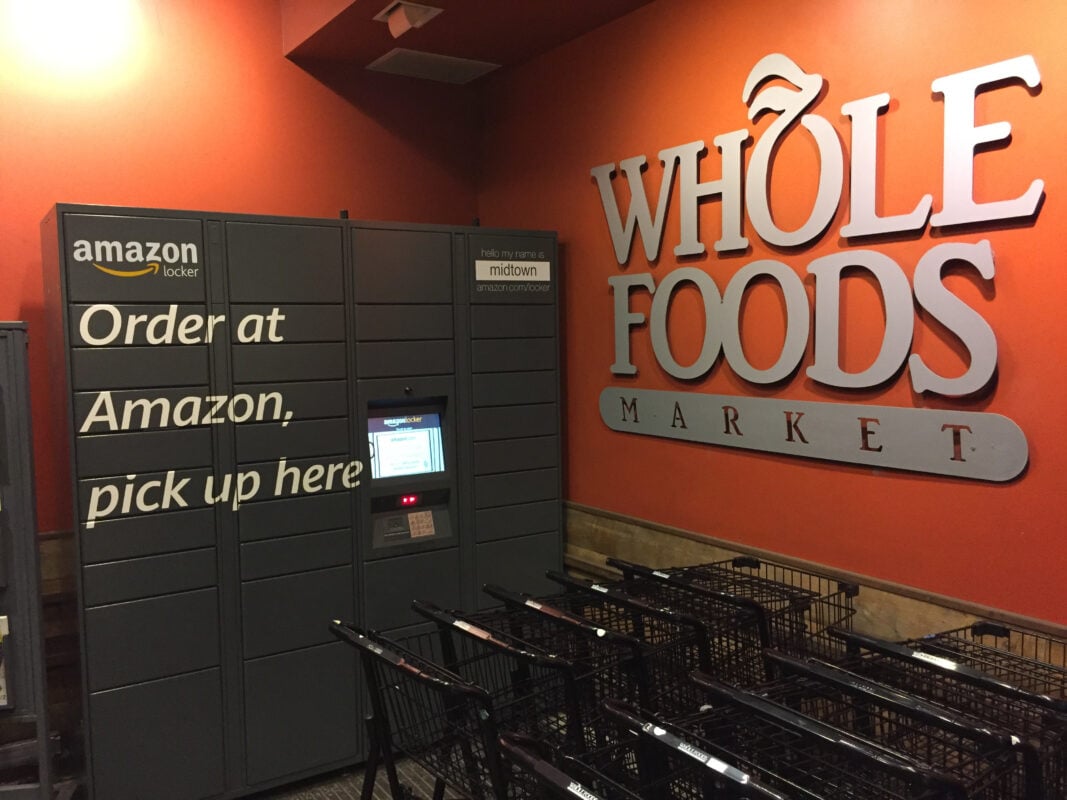TLDRs;
- Amazon introduces 300 Whole Foods’ 365 products to Singapore via Amazon Fresh and retailer Little Farms.
- This marks the first launch of Whole Foods’ private-label items outside the US, UK, and Canada.
- The expansion is part of Amazon’s broader grocery consolidation under Whole Foods CEO Jason Buechel.
- Singapore could serve as a testing ground for Whole Foods’ global private-label expansion into Asia.
Amazon has taken a major step in expanding its grocery business by bringing 365 by Whole Foods Market products to Singapore.
About 300 private-label goods are being introduced through Amazon Fresh and local premium retailer Little Farms, making Singapore the first market outside the United States, Canada, and the United Kingdom to access these items.
Whole Foods, acquired by Amazon in 2017, has no physical stores in Singapore. Instead, this launch leverages Amazon’s delivery infrastructure and local retail partnerships to tap into growing demand for high-quality, organic, and natural products in Asia.
365 Brand Extends Global Reach
The 365 by Whole Foods Market brand is a cornerstone of the company’s private-label strategy. Known for its affordability and focus on healthy options, the label spans pantry staples, snacks, beverages, and household essentials.
Its entry into Singapore represents Amazon’s push to globalize Whole Foods’ offerings while testing demand in new geographies.
With Whole Foods currently offering around 4,000 private-label items across brands such as 365, Whole Foods Market exclusive, and Whole Paws, the Singapore launch highlights Amazon’s intent to diversify its international grocery portfolio.
Consolidating Grocery Leadership
The expansion comes amid broader changes within Amazon’s grocery operations. The company recently consolidated its food retail businesses under Jason Buechel, who has served as CEO of Whole Foods since 2022. Under his leadership, Amazon is seeking to create a more streamlined strategy that blends physical retail, online delivery, and private-label growth.
Amazon’s grocery efforts are strategically important as competition intensifies in global e-commerce. Rivals such as Walmart and Alibaba are strengthening their own food and delivery services, and Amazon’s ability to tie grocery into its Prime ecosystem could be a key differentiator.
Asia as a Testing Ground
Choosing Singapore as the first non-Western market for Whole Foods’ products underscores the city-state’s role as a testing ground for global retail expansion.
Singapore’s diverse, urban consumer base is known for embracing premium and international brands, making it an ideal environment to pilot new grocery strategies.
If successful, Amazon is likely to expand Whole Foods’ private-label products into other Asian markets, although no specific countries have been confirmed. With Whole Foods stores having grown to about 535 globally, up from 460 at the time of Amazon’s acquisition, Amazon’s long-term vision appears focused on scaling private-label reach both online and offline.







